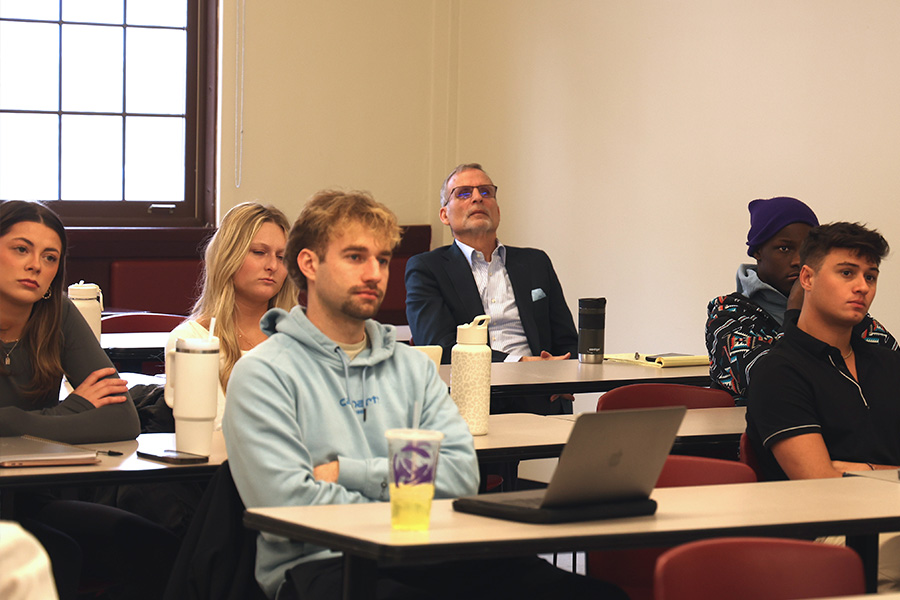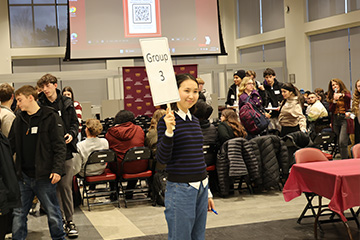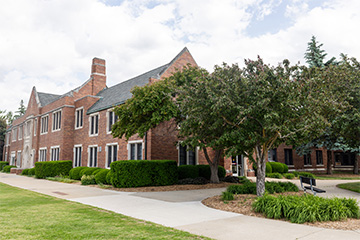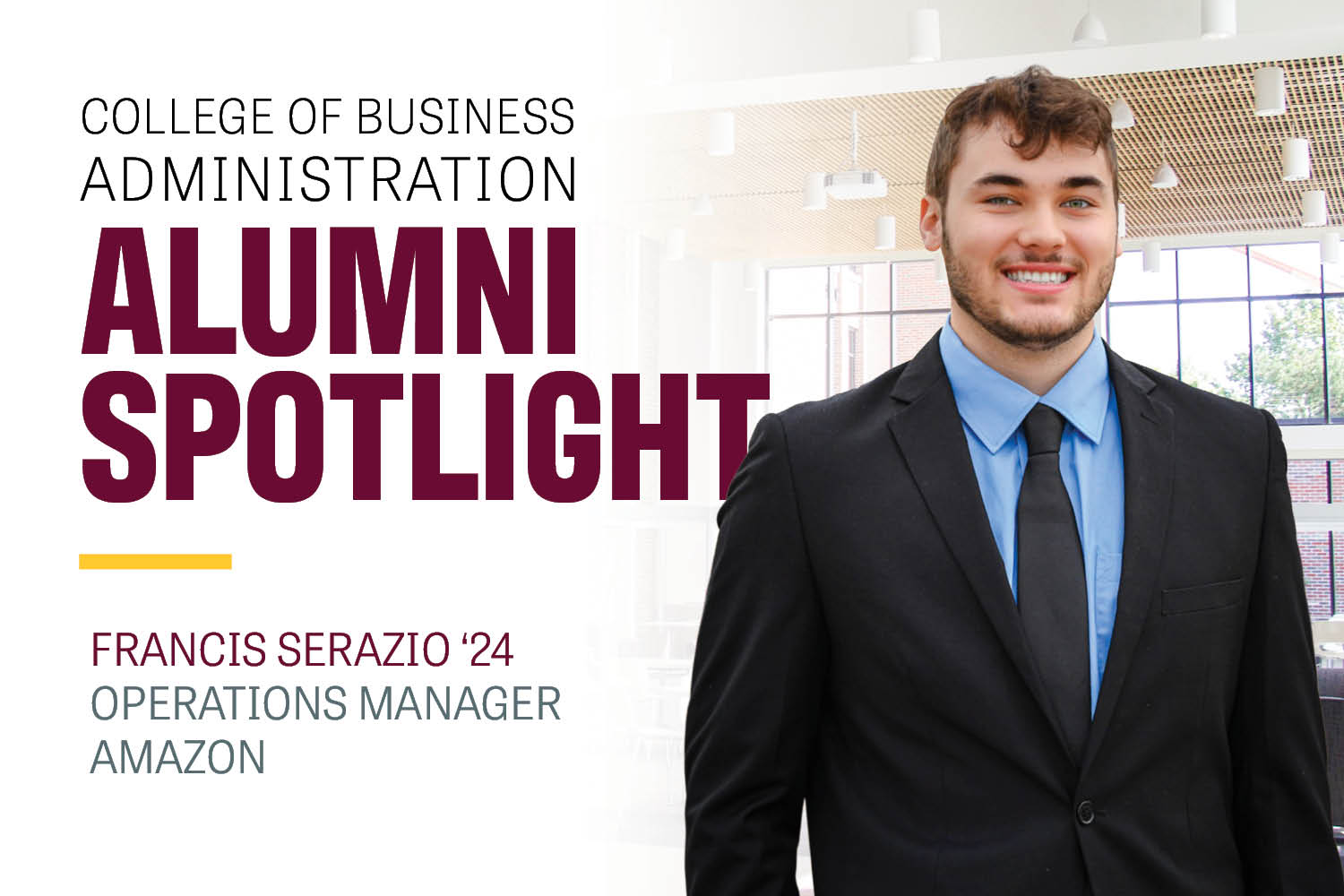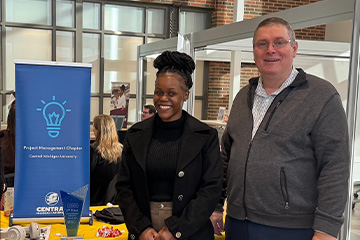Building faculty connections pays off for business students
Faculty provide mentorship, opportunities and support beyond the classroom
Conversations with faculty can shape not only a student’s academic journey but also their career. Yet many students hesitate to knock on a professor’s door. For Jeffrey Hoyle, faculty member in Marketing, Hospitality, & Logistics and department student advisor, those conversations are where growth begins.
Why faculty connections matter
Hoyle said building relationships with faculty allows students to tap into academic support, mentorship and opportunities that extend well beyond the classroom. Faculty can help with coursework, research and projects, but they also guide students through career decisions, personal development and professional networking.
Strong connections may open doors to internships, research collaborations and leadership roles. They also help when students need personalized letters of recommendation for jobs, scholarships or graduate programs.
Perhaps most importantly, Hoyle said, faculty relationships can boost confidence and create belonging. “Feeling supported by faculty can boost a student’s confidence and foster a sense of belonging in their academic community,” he said.
How to get past the nerves
Reaching out isn’t always easy. Hoyle encourages students to remember that office hours exist for them and that professors expect questions. He suggests starting small, such as sending a short email or asking one question in class. Preparing a few talking points in advance can also make conversations feel more natural.
Attending office hours with a classmate, he added, can help ease initial nerves. “Think of it as a professional skill,” Hoyle said. “Communicating with faculty builds confidence for future interactions with managers, colleagues or clients in the workplace.”
He also reminded students that faculty were once students themselves. “We understand what it feels like to take that first step,” he said.
Mistakes to avoid
Hoyle noted that some students unintentionally make missteps that can be avoided with preparation and professionalism. Students sometimes arrive unprepared, communicate too casually or only reach out when they’re struggling. Others forget to follow up after receiving advice.
His recommendation: be proactive, respectful of faculty time and intentional in maintaining ongoing communication.
Connections that last beyond graduation
Above all, Hoyle views faculty-student connections as collaborative relationships that often extend past college. “I have past students who still connect with me regularly to bounce ideas and share their successes and challenges,” he said. “They even refer to me as ‘Coach.’ It is truly an honor to stay in conversation with both current and former students.”
Hoyle’s message is clear: building strong relationships with faculty is not just about getting through a class. It’s about developing skills, confidence and connections that can serve students long after graduation.
